Vocabulary development Phonics Worksheets for Ages 6-8
11 filtered results
-
From - To
Boost your child's vocabulary and phonics skills with our carefully crafted Vocabulary Development Phonics Worksheets for Ages 6-8. These engaging worksheets are designed to make learning fun and effective, helping young learners grasp essential vocabulary and phonetic patterns. Our collection covers various themes and difficulty levels, ensuring comprehensive language development. Perfect for classroom use or home practice, these interactive worksheets promote reading confidence and literacy. Help your 6-8 year-old unlock the joys of reading as they explore, practice, and master new words with our vibrant, educational resources. Start their journey to language success today!
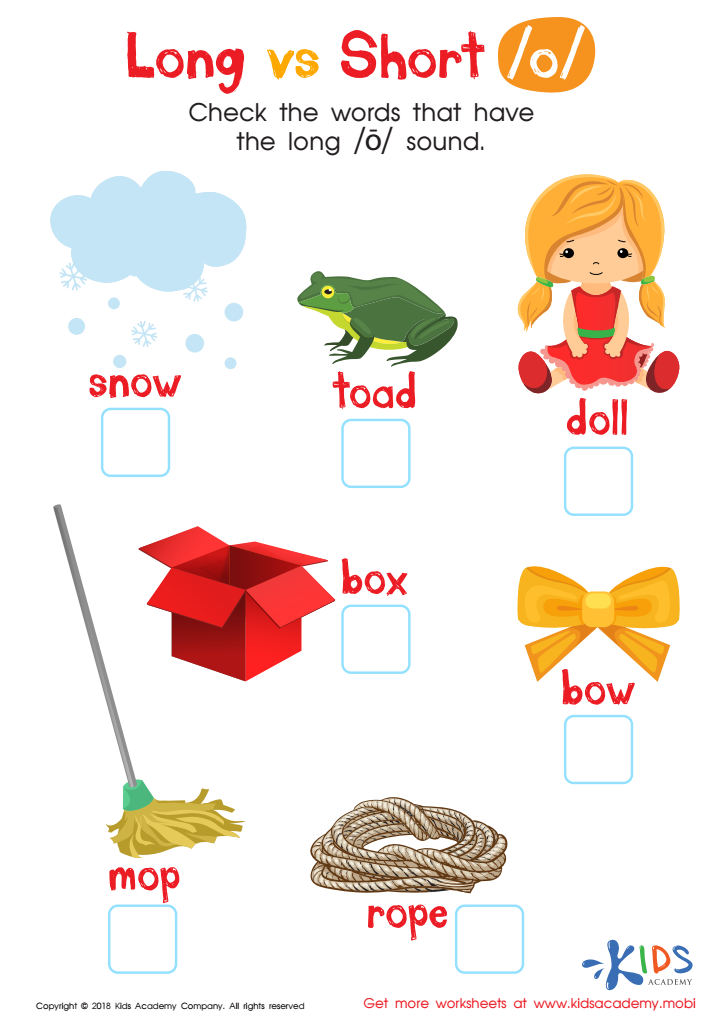

Long vs Short O Reading Worksheet


Vowel and Consonant Sounds: Assessment Worksheet


Phonics and Word Recognition: Assessment 3 Worksheet
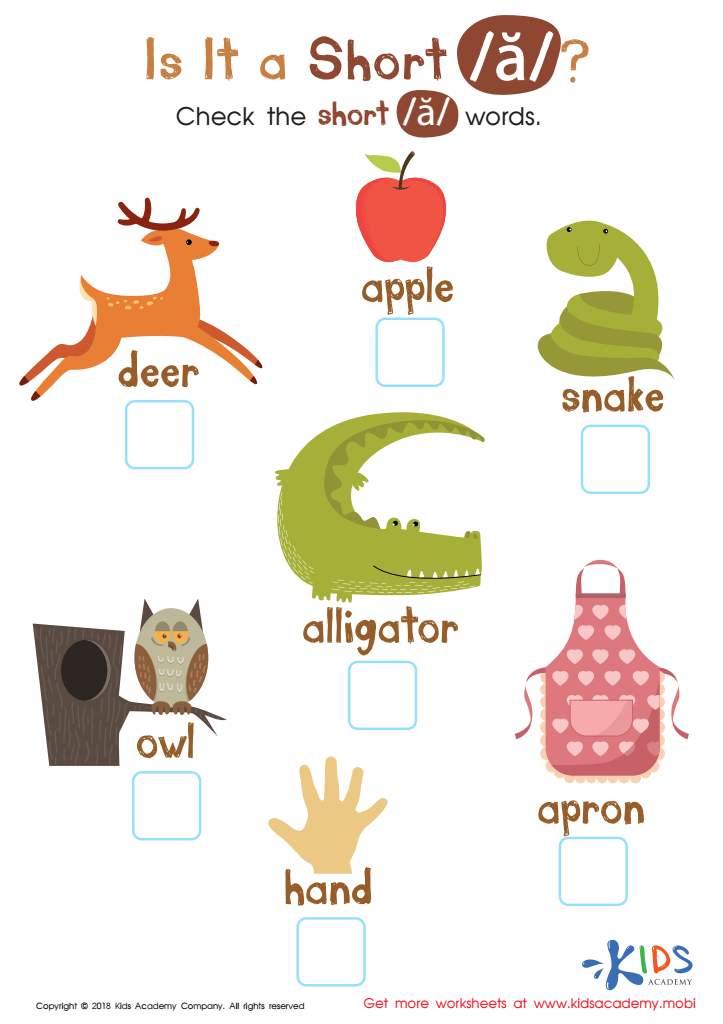

Is It Short A? Reading Worksheet
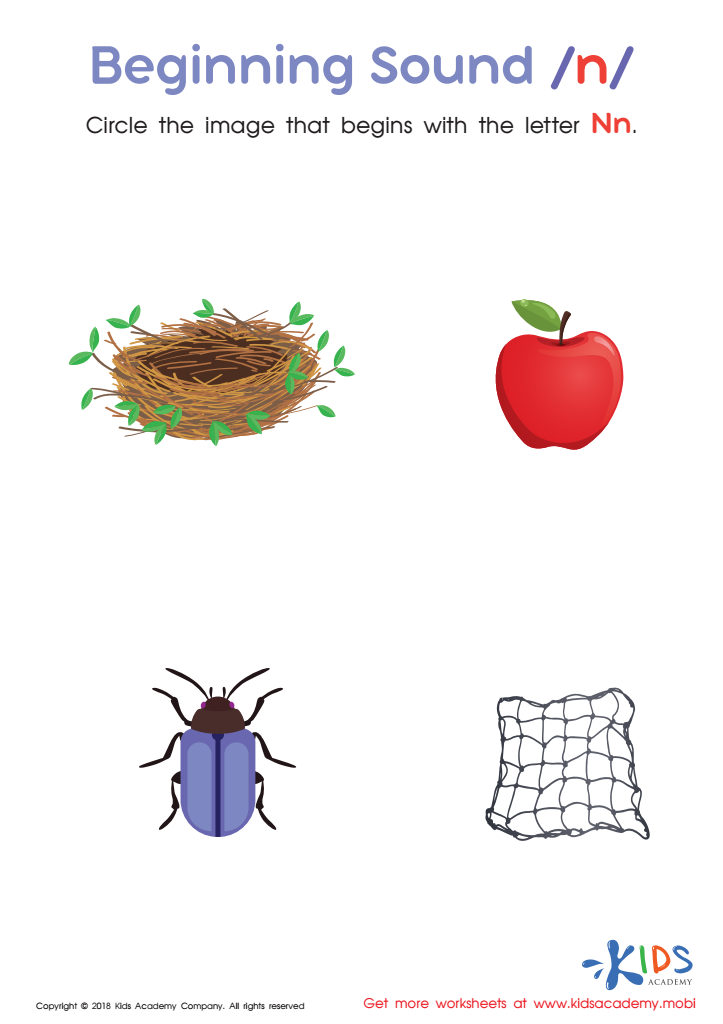

Beginning Sound «n» Worksheet
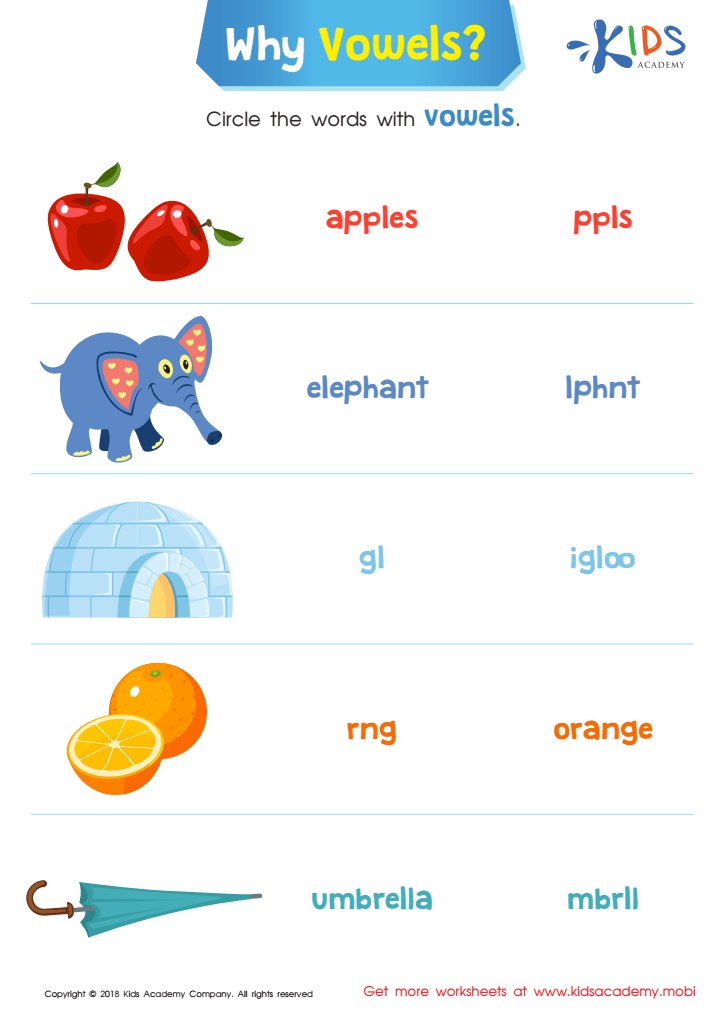

Why Vowels? Reading Worksheet
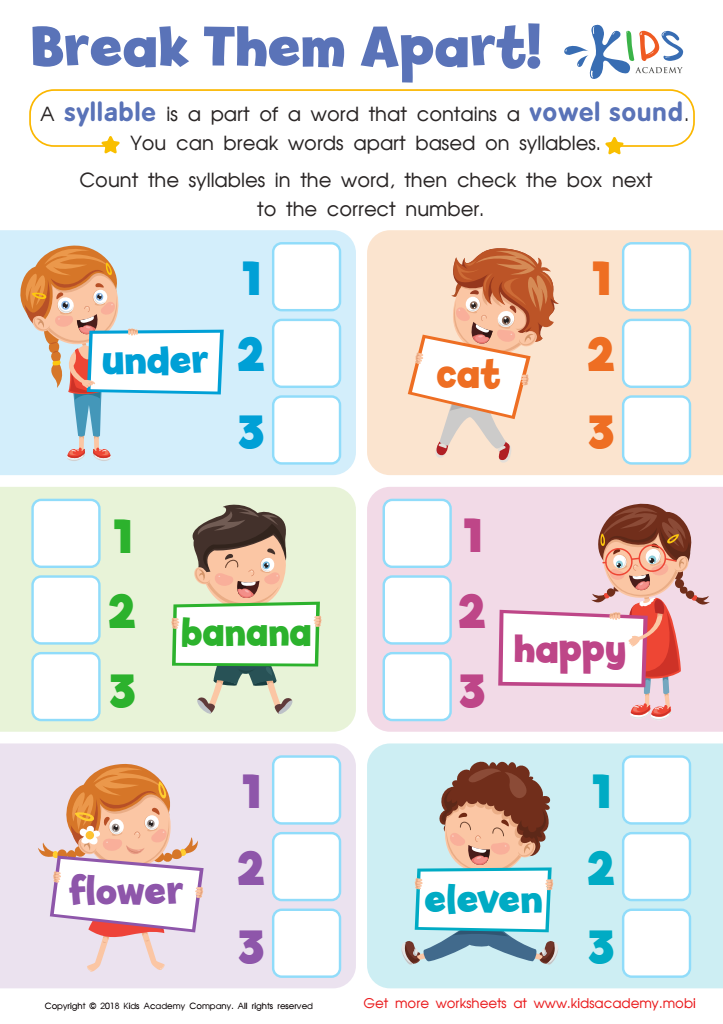

Reading: Break Them Apart Worksheet
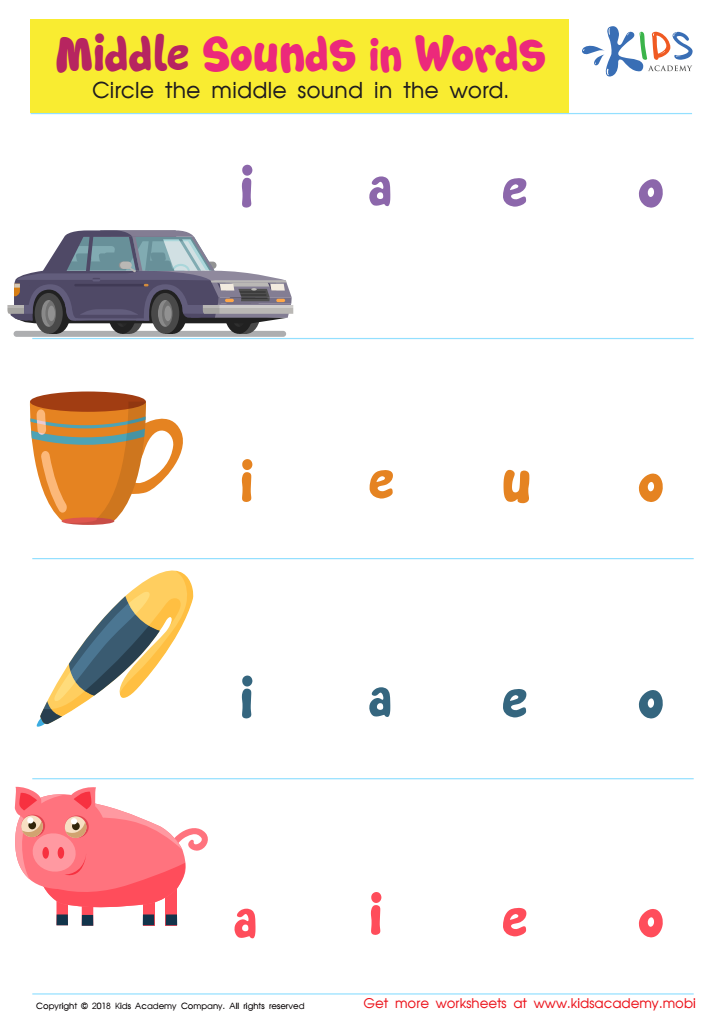

Middle Sounds in Words Worksheet
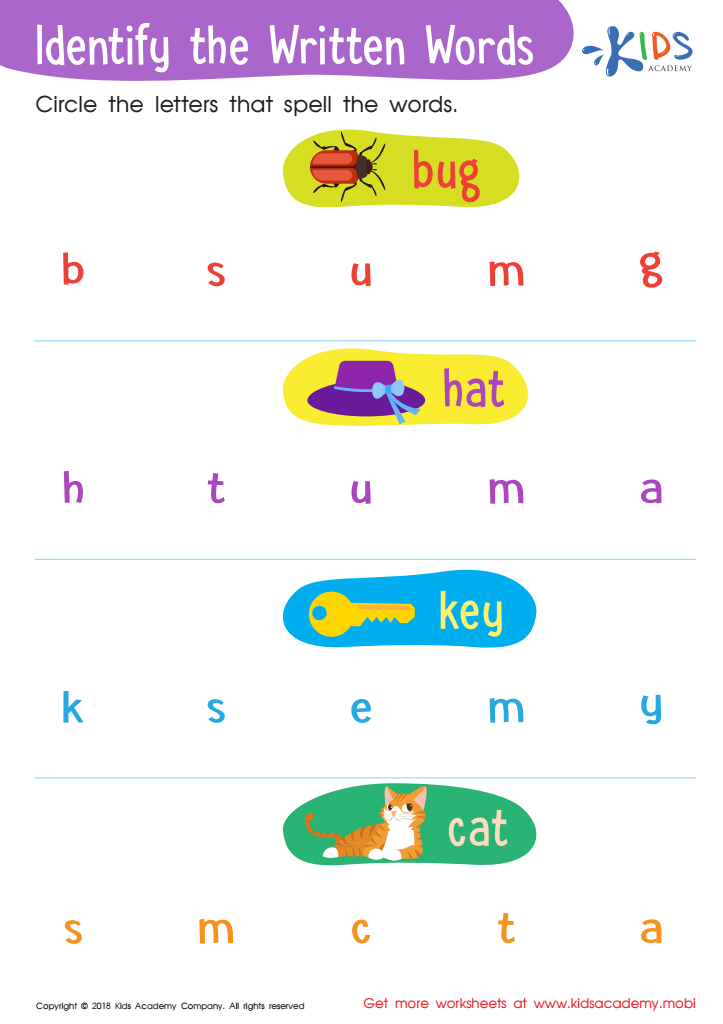

Identify the Written Words Worksheet
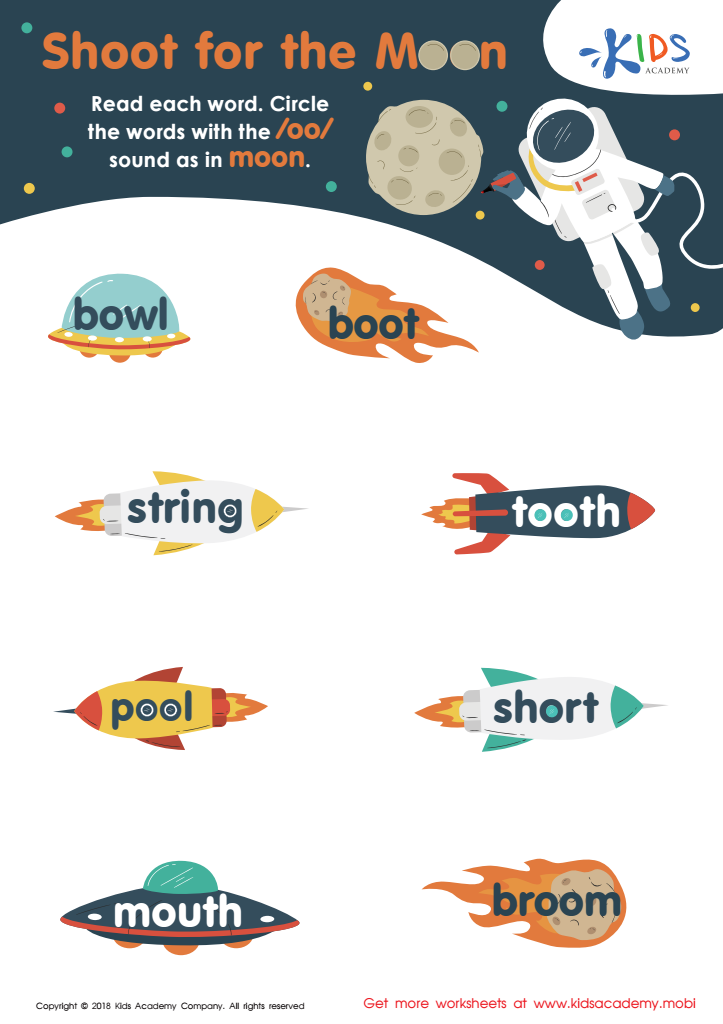

Reading: Shoot for the Moon Worksheet
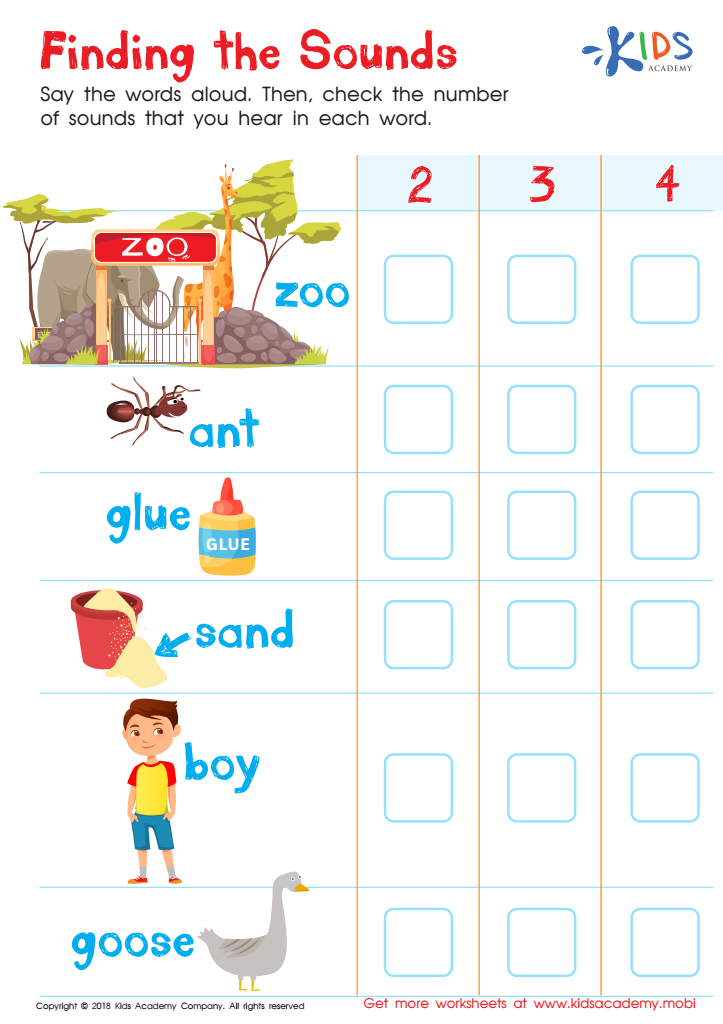

Finding the Sounds Worksheet
Parents and teachers should prioritize vocabulary development and phonics instruction for children aged 6-8 because these foundational skills are crucial for literacy and overall academic success. At this stage, children are in a critical period of language acquisition, which sets the stage for their future learning. Vocabulary development enhances their ability to comprehend texts, express thoughts and ideas clearly, and engage in meaningful conversations. A rich vocabulary also builds a foundation for more complex language skills, aiding in reading comprehension and fostering a lifelong love for reading.
Phonics instruction, which teaches the relationships between sounds and their corresponding letters or groups of letters, is equally crucial. It helps children decode new words, improving their ability to read independently and confidently. Understanding phonics also supports spelling skills, enabling children to write more accurately and coherently. Early phonics education builds the neural pathways necessary for fluent reading, which is linked to academic achievement in nearly every subject area.
Moreover, children who develop strong vocabularies and phonetic skills during these formative years are better equipped to tackle more challenging materials as they progress in school. Therefore, investing time and resources in vocabulary and phonics instruction at ages 6-8 provides invaluable benefits for children's educational journeys and overall cognitive development.
 Assign to My Students
Assign to My Students
















